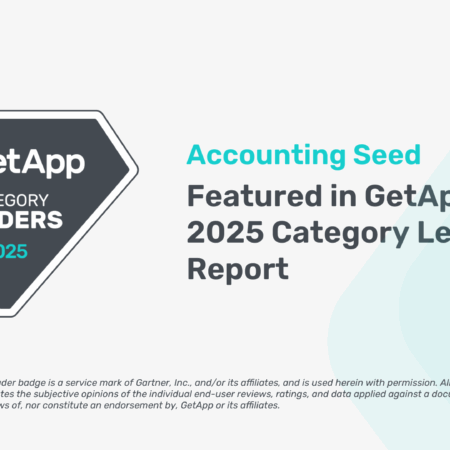
Your small business is growing, but the costs seem to be as well, right? Even as revenue increases, so do expenses. As you expand your operations and take on more customers, you’ll need to invest more money in your business. The old adage is true: to make money, you need to spend money. Too much though, and your company will suffer. No matter what industry you’re a part of, small business expense tracking is mission-critical. Let’s look at some of the best strategies and tools for tracking expenses and conserving revenue.

Benefits of Business Expense Tracking
Expense tracking is essential whether you’re a startup or a well-established company. Business costs and mishandled accounting are among the top reasons for business failure. In 2018, an analysis of business failures found that 29% of businesses failed simply because they ran out of cash. In the same study, 18% of startups failed as a result of pricing and cost issues. Understanding and controlling business expenses helps you avoid these scenarios and improves your company’s efficiency.
Understanding Your Expenses
The core benefit of tracking your expenses is that you can clearly visualize where and how your money is spent. Understanding these expenses helps you see whether you’re overspending on certain aspects of your business, or if you’re using the money to successfully enhance your business. This is important for preventing cash drain and allocating your funds efficiently. Expense tracking also lets you see the return on investment for each resource and service you’re using. Additionally, monitoring your business expenses is valuable for completing taxes and a core component of managing and assessing financial health. Without tracking and identifying the roots of expenses, your apt to just waste money. Or, you could be missing valuable opportunities to adjust your financial strategy to achieve goals.
Top 5 Tips and Tools for Better Business Expense Tracking
Common, often cheap accounting solutions like QuickBooks really aren’t effective at managing a growing business’ finances. They’re too limited. As your business evolves, you need software that’s adaptable to your requirements. And let’s face it, you need an easy way to manage your expenses and payments. One of the most important investments you can make for your business is in an automated, flexible accounting system. Here are a few things to help you master expense tracking and gain true value out of your accounting system.
Get out of Spreadsheets
Relying on spreadsheets is risky, especially for growing businesses. They lack the automation and capacity to adapt to how your organization operates. This means that much of the expense management will be very labor-intensive. No one wants to scan through spreadsheets just to find the expense information needed or update them with every change. Additionally, spreadsheets are prone to data-related mistakes that can be easily overlooked and come back to hurt you. Instead, use an automated accounting system. This lets you track current expenses instantaneously. All changes in expenses throughout the company are shared and updated in real-time without using spreadsheet codes. This reduces the time it takes to track expenses and gives you more accurate data.
Revisit Your Chart of Accounts
Tracking business expenses is much easier with a chart of accounts that’s properly tailored to your business needs. While base expenses likely won’t change, you should revisit how new or growing expenses should be grouped and classified in the chart. This makes it easier to analyze individual expenses instead of having to hunt through large data sets of unrelated data.
Re-Evaluate Financial Plans
An initial business budget is just a plan. Small business expense tracking looks at the actual costs of business. As the business grows, you’ll likely experience both positive and negative budget variances, reflecting increasing profits and costs. Ensure your financial plan is up-to-date and relevant by incorporating new expenses. You’ll want to allow room for in the new budget(s) for things like supplies, staffing, and marketing. Adjusting for new expenses makes it easy for you to isolate and track cash flow while also helping maintain the budget. While you’ll want to try and stick to your budget, you may need to readjust as you go. Tracking expenses will indicate whether the expenses are paying off or just dead weight. If the expenses are not generating results – eliminate the expenses or refine strategies to achieve more value.
Run Frequent Reports
Financial reporting and analysis are essential for tracking and controlling your business expenses. This is what will help you answer all of your expense questions like if you’re going over budget or if they’re even paying off. Visualizing the numbers lets you and your team decide on adjustments needed to remain on budget. This also gives valuable financial data needed to make the best decisions. Financial reports also help you pinpoint to measure success and maintain lower costs. You’ll want accounting software with strong financial reporting features, to analyze expenses from every business dimension. Additionally, you need custom reports to drill down further into specific expenses.
Use Collaborative and Connected Accounting Software
Strong expense management requires a proactive approach to finances. Collaborative accounting will play a key factor in identifying what’s causing surging costs and how to deal with them. You’ll want accounting software that will allow you and your team to track expenses as a team. With everyone on the same page, your company will be able to make more unified decisions strengthened by collective analysis. This also reduces financial inaccuracies or data misinterpretation. Expense tracking should be done across the entire company, drawing data from your other business apps connected to a single accounting system. This allows for smoother financial management and a straightforward way to track expenses throughout the financial lifecycle. Using a business platform like Salesforce and a native accounting application, like Accounting Seed, creates a 360-degree view of your company’s quote-to-cash process. These collaborative and connective features work together to deliver a more concrete way to track expenses.
See Accounting Seed in action
See how accounting on Salesforce can eliminate the need for costly integrations—and silos of mismatched information—by sharing the same database as your CRM.



